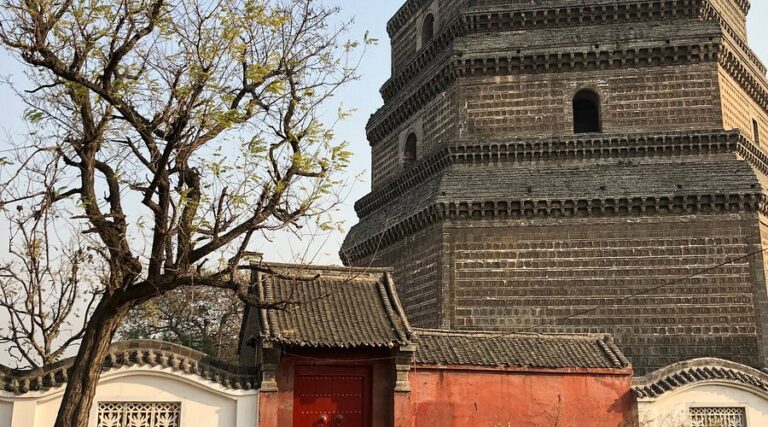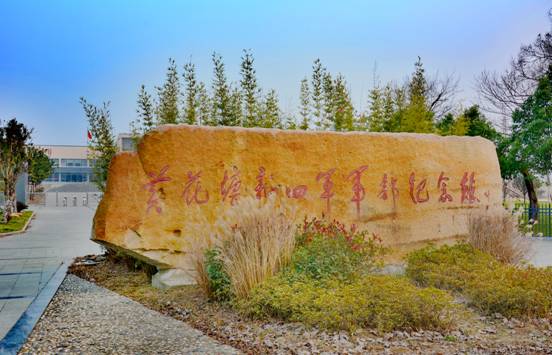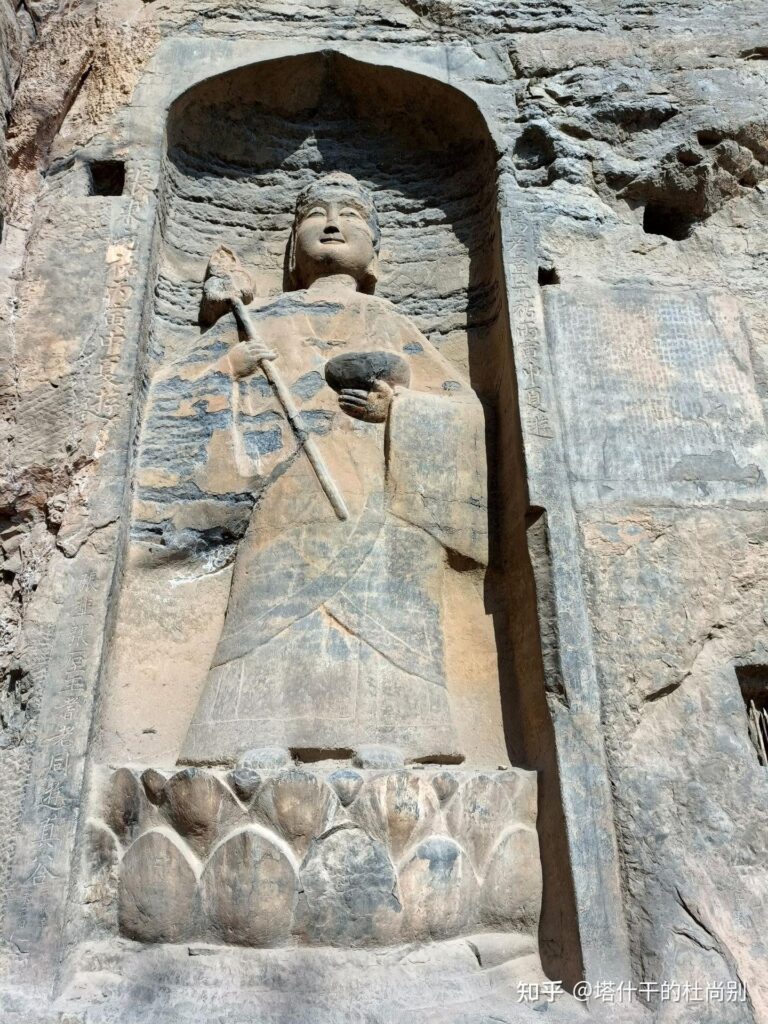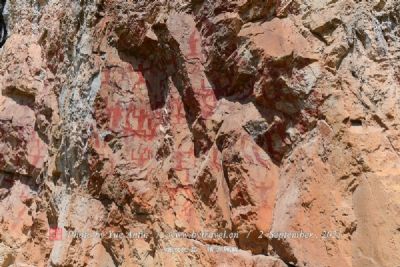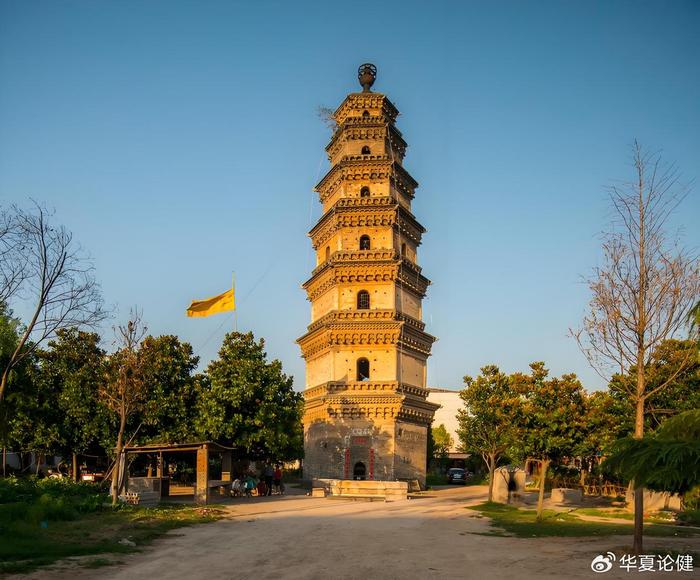Unveiling the Spiritual Heart of Beijing: Niujie Libaisi in Xicheng
An Essential Guide to Visiting Beijing Xicheng Niujie Libaisi
In This Guide
- An Essential Guide to Visiting Beijing Xicheng Niujie Libaisi
- The Rich History of Beijing Xicheng Niujie Libaisi
- Main Highlights: What to See at Beijing Xicheng Niujie Libaisi
- Planning Your Visit: A Practical Guide
- Tickets, Hours, and Booking
- How to Get There
- Local Cuisine and Accommodation
- Frequently Asked Questions
- Final Thoughts on Your Trip
Nestled in the vibrant heart of Beijing’s Xicheng District, the Niujie Libaisi, or Niujie Mosque, stands as a testament to the city’s rich cultural tapestry. As the largest and oldest mosque in the capital, it has served as a spiritual haven for the Hui ethnic community for over six centuries. This architectural marvel, with its unique blend of traditional Chinese and Arab Islamic styles, invites visitors not only to explore its serene grounds but also to immerse themselves in the profound history and rituals that thrive within its walls.
Originally built in 996 AD during the Liao Dynasty, the mosque has undergone various renovations throughout the Ming and Qing dynasties, preserving its grandeur and significance. Spanning approximately 6,000 square meters, the complex features a magnificent prayer hall, a soaring minaret, and intricately carved pavilions, each telling a story of devotion and artistry. The mosque’s design reflects the harmonious coexistence of cultures, making it a unique gem in Beijing’s architectural landscape.
For travelers seeking to experience the spiritual and cultural essence of Beijing, a visit to Niujie Libaisi is essential. Whether you are drawn by the allure of its stunning architecture, the tranquility of its prayer halls, or the vibrant community that gathers here, the Niujie Mosque promises an enriching experience that transcends mere sightseeing. As you wander through its peaceful courtyards, you will not only witness the rituals of daily prayers but also feel the echo of centuries of history that continue to shape this remarkable place.
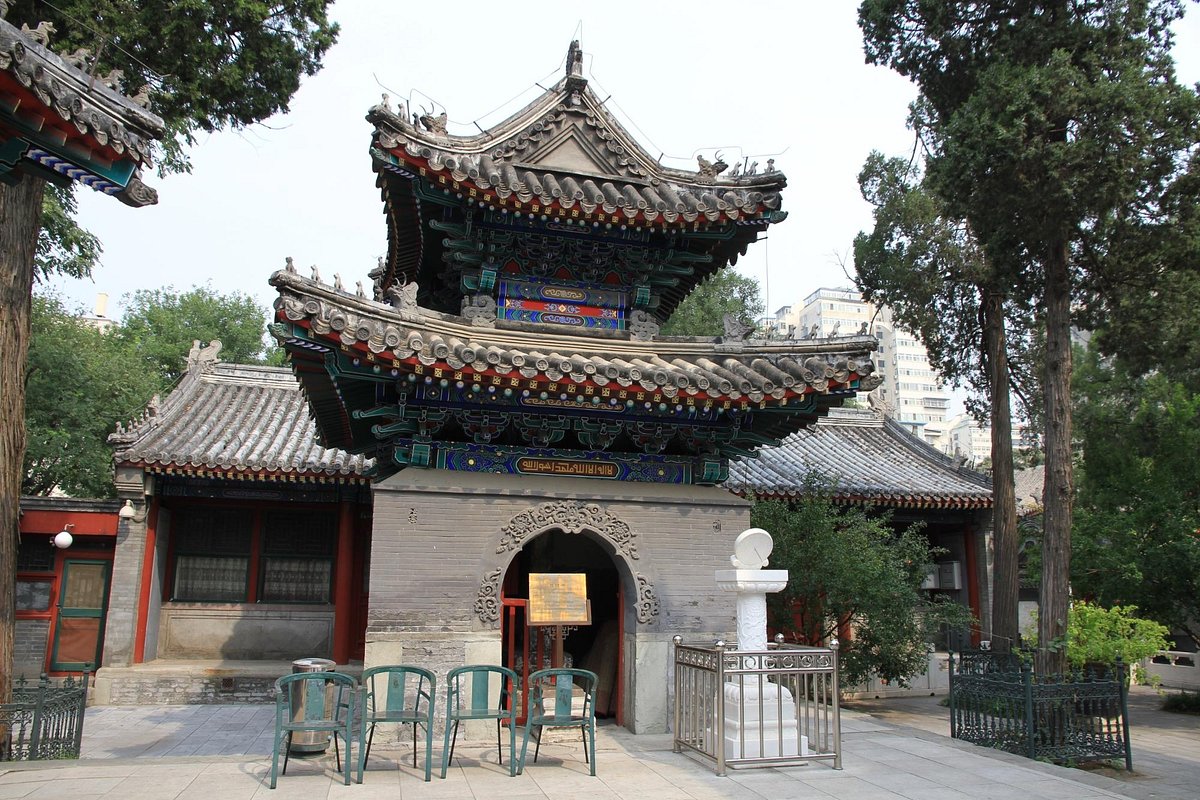
Beijing Xicheng Niujie Libaisi.
The Rich History of Beijing Xicheng Niujie Libaisi
Beijing’s Niujie Libaisi (牛街礼拜寺), also known as the Niujie Mosque, stands as a remarkable testament to the rich cultural tapestry and historical significance of Islamic architecture in China. Established during the Liao Dynasty in 966 AD, it is the oldest mosque in Beijing and has since evolved to become the largest and most prominent among the city’s four major mosques.
Originally named “Libaishi” in 1474 during the Ming Dynasty, the mosque underwent numerous renovations and expansions, blending traditional Chinese architectural elements with Islamic design. This fusion is evident in its grand layout, which covers approximately 6,000 square meters. The mosque features key structures such as the prayer hall, the minaret (Xuanli Lou), and an array of pavilions and courtyards that invite reflection and reverence.
The mosque’s architecture is a distinctive synthesis of Chinese palace styles and Arabian mosque aesthetics. Its main prayer hall is oriented towards Mecca, a critical aspect of mosque design, ensuring that worshippers face the holy city during prayers. The interior is adorned with intricately painted ceilings, ornamental columns, and elaborate decorative motifs that reflect the artistry of both Islamic and Chinese cultures.
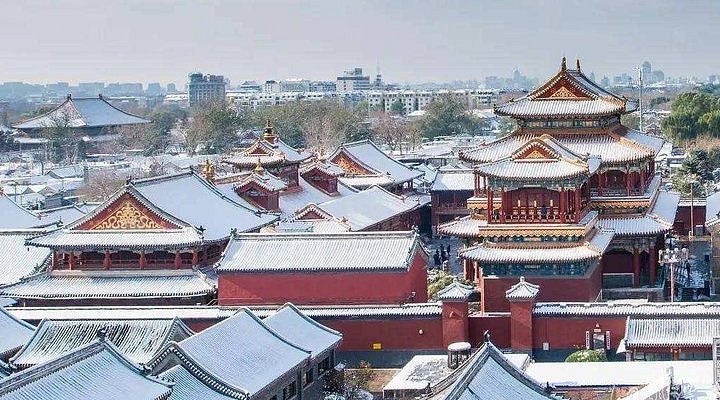
Beijing Xicheng Niujie Libaisi.
Throughout its history, Niujie Libaisi has played an essential role in the Islamic community in Beijing, serving as a center for worship, education, and cultural exchange. The mosque has hosted numerous significant events, including community prayers, religious festivals, and educational programs about Islam. It stands not only as a place of worship but also as a cultural hub where the Islamic heritage is preserved and promoted.
Over the centuries, the mosque has witnessed the ebb and flow of history, including the impacts of political changes and modernization. Today, it remains an active place of worship and a popular tourist attraction, drawing visitors interested in exploring its historical and architectural significance.
In recent years, the mosque has become a symbol of religious tolerance and cultural diversity in Beijing, showcasing the harmonious coexistence of different faiths in this bustling metropolis. As it continues to serve the local Muslim community and educate visitors about Islamic culture, Niujie Libaisi endures as a cherished landmark that encapsulates the rich historical narrative of Beijing’s multicultural identity.
Main Highlights: What to See at Beijing Xicheng Niujie Libaisi
Nestled in the heart of Beijing’s Xicheng District, Niujie Libaisi (牛街礼拜寺), also known as Niujie Mosque, stands as a testament to centuries of Islamic architecture and culture in China. As the largest and oldest mosque in Beijing, this spiritual haven offers visitors a unique blend of history, architecture, and cultural experiences.
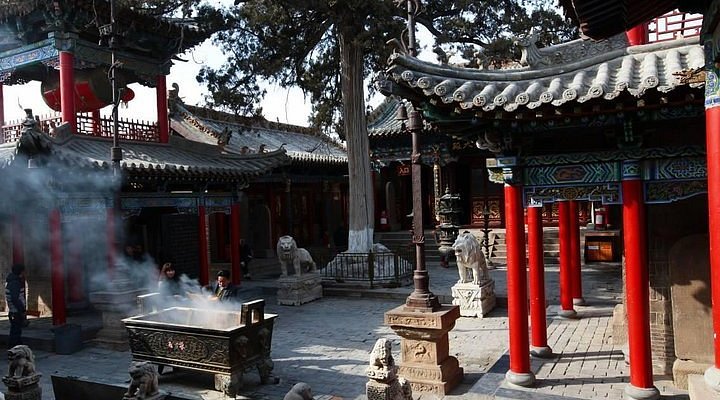
Beijing Xicheng Niujie Libaisi.
The mosque was originally established during the Liao Dynasty in the 10th century and later flourished under the Ming Dynasty, reflecting a rich heritage that spans over 600 years. Its striking architecture is a harmonious fusion of traditional Chinese palace design and Arabic mosque aesthetics, making it a remarkable sight for both architecture enthusiasts and casual tourists alike.
Architectural Marvels
The primary prayer hall is an awe-inspiring structure that can accommodate up to a thousand worshippers. The grand entrance is flanked by the elegant Wangyuelou (望月楼), a tower that symbolizes the elevation of faith, and features intricately carved wooden beams and vibrant decorations. Inside, visitors can admire the stunning red and gold motifs that adorn the ceilings and columns, where Islamic calligraphy and floral patterns create a vivid contrast against the serene atmosphere.
Cultural Significance
Niujie Mosque is not only a place of worship but also a vibrant center for the Hui ethnic community, which has played a significant role in the cultural tapestry of Beijing. Visitors can engage with the local culture, especially during the five daily prayers and the communal Friday prayers, known as Jummah. These moments offer a glimpse into the daily life and spiritual practices of the Muslim community.
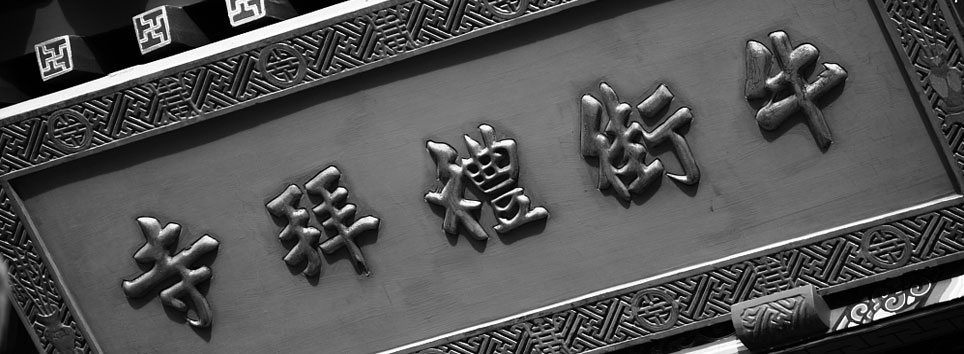
Beijing Xicheng Niujie Libaisi.
Surrounding Attractions
The mosque is situated in a lively neighborhood characterized by traditional hutongs, bustling markets, and delightful eateries. Just a short stroll away, the Niujie Muslim Market offers a taste of authentic Hui cuisine, including delicious lamb dishes and freshly baked pastries. The nearby South Luogu Lane is also a popular destination, known for its trendy cafes and boutique shops, perfect for a leisurely afternoon.
Visiting Tips
- Best Time to Visit: Open year-round, the mosque is particularly vibrant during prayer times, when you can witness the community coming together in worship.
- Entry Fee: A nominal fee of 10 RMB for adults and 5 RMB for children makes this historical site accessible to all.
- Recommended Duration: Allocate about an hour to explore the mosque and soak in its serene ambiance.
Engaging with the cultural and architectural richness of Niujie Libaisi offers an enriching experience that highlights the diverse tapestry of Beijing’s history and its harmonious coexistence of different cultures. Whether you’re a history buff, an architecture aficionado, or simply curious, a visit to this iconic mosque is sure to leave a lasting impression.
Planning Your Visit: A Practical Guide
Practical Guide to Visiting Niujie Mosque in Beijing
Niujie Mosque (牛街礼拜寺), located in the heart of Beijing’s Xicheng District, is not only the largest but also the oldest mosque in the city, steeped in over 600 years of history. It serves as a vibrant center of Islamic culture and architecture, attracting both worshippers and tourists alike. Here’s your practical guide to making the most of your visit.
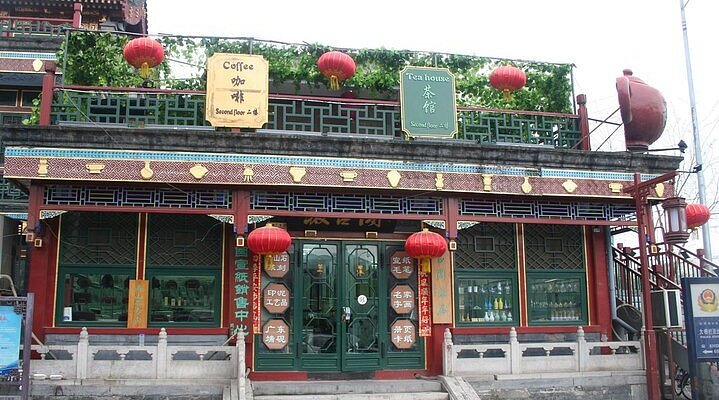
Beijing Xicheng Niujie Libaisi.
Getting There
- Address: 88 Niujie North Road, Xicheng District, Beijing.
- Public Transport:
- Buses: Take bus lines 10, 48, 88, 213, or 717 and disembark at the Niujie Mosque stop, which is just a short walk away.
- Subway: The nearest subway station is Caishikou (Line 4), from which it’s about a 20-minute walk to the mosque.
- Taxi: Taxis are widely available throughout Beijing. Just provide the address in Chinese (牛街礼拜寺) for easy navigation.
Opening Hours and Admission
- Hours: The mosque is open daily, allowing visitors to explore its grandeur at any time.
- Admission Fee:
- Adults: 10 CNY
- Children: 5 CNY
- Recommended Visit Duration: Plan to spend about 1 hour here to fully appreciate the architecture and ambiance.
What to Expect
As you approach the mosque, you’ll be greeted by its impressive combination of traditional Chinese architectural styles and Islamic design elements. The mosque features several key areas:
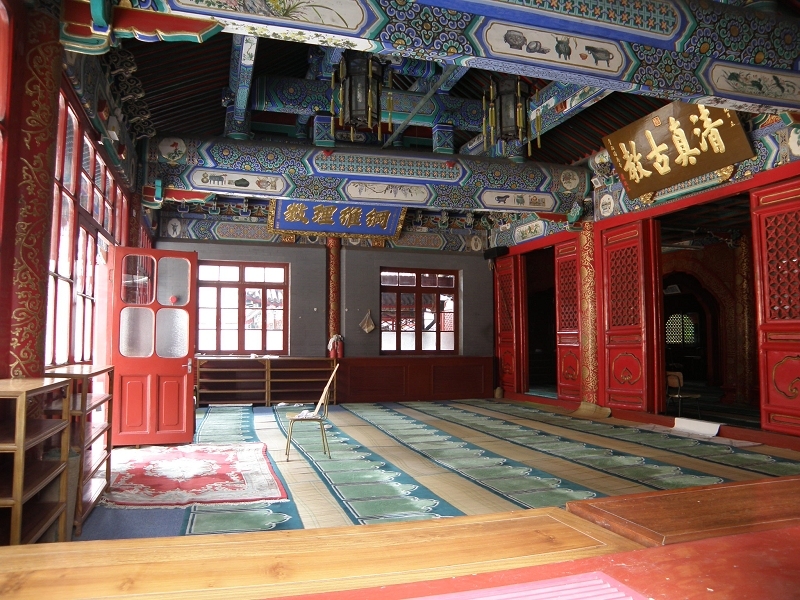
Beijing Xicheng Niujie Libaisi.
- Prayer Hall (礼拜大殿): The most significant part of the mosque, it faces Mecca and can accommodate up to 1,000 worshippers. Inside, admire the intricate decorations and the stunning calligraphy of Quranic verses.
- Worship Towers: The towers are notable landmarks, providing a serene backdrop for prayer and reflection.
- Cultural Insights: If you visit during prayer times, you’ll witness the beautiful rituals and sounds that accompany Islamic worship, enhancing your understanding of the local culture.
Tips for Visitors
- Dress Code: Visitors are advised to dress modestly. While there is no strict dress code, covering shoulders and knees is respectful, especially since this is a place of worship.
- Photography: Be mindful of where you take photos; some areas may be restricted. Always ask for permission if you’re unsure.
- Respectful Behavior: Maintain a quiet demeanor, especially during prayer sessions, to honor the sanctity of the space.
- Guided Tours: If you’re interested in a deeper understanding of the mosque’s history and significance, consider joining a guided tour. Local guides can provide insights into the architectural features and the Muslim community in Beijing.
Nearby Attractions
After your visit to Niujie Mosque, explore the surrounding area for more cultural experiences:
- Niujie Muslim Street: Just a short stroll away, this street is famous for its halal food stalls and shops. Sample delicious local dishes and experience the vibrant atmosphere.
- Beijing’s Hutongs: Discover the traditional alleyways that characterize old Beijing, offering a glimpse into everyday life and architecture.
- Cultural Sites: Consider visiting other historical sites such as the White Pagoda Temple or the Grand View Garden, which are nearby and rich in historical significance.
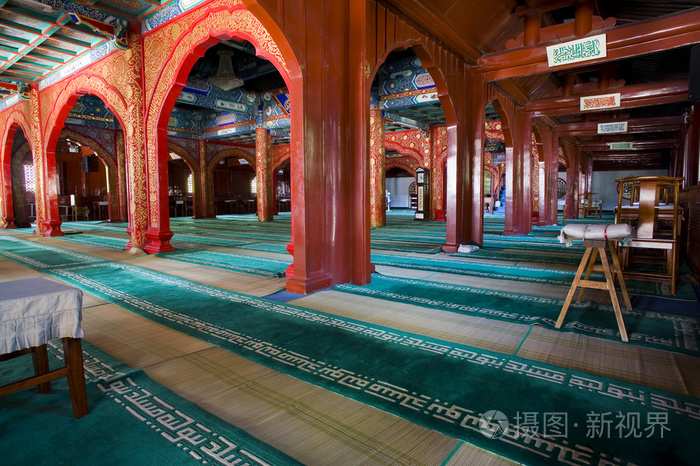
Beijing Xicheng Niujie Libaisi.
Conclusion
Niujie Mosque is not just a place of worship; it is a cultural gem that showcases the unique blending of Islamic and Chinese heritage. With its stunning architecture and welcoming atmosphere, a visit to this mosque is a rewarding experience for anyone exploring Beijing. Whether you are there for spiritual reflection or cultural appreciation, this mosque is a must-visit destination on your Beijing itinerary.
Tickets, Hours, and Booking
When planning a visit to Niujie Mosque (牛街礼拜寺) in Beijing, it’s important to note the ticket pricing and other relevant details to ensure a smooth experience.
Ticket Prices:
- Adults: ¥10
- Children: ¥5
Visiting Information:
- Recommended Duration: Allocate approximately 1 hour for your visit to fully appreciate the site.
- Opening Hours: The mosque is open throughout the year, making it accessible for visitors at any time.
Additional Tips:
- Contact Information: For inquiries, you can reach the mosque at 010-63532564.
- Location: Niujie Mosque is situated at No. 88, Niujie Middle Road in Xicheng District, making it easy to access via public transport.
- Transportation: You can take several bus routes, including 10, 48, 88, and 213, and alight at the Niujie Mosque stop, which is a short walk from the entrance.
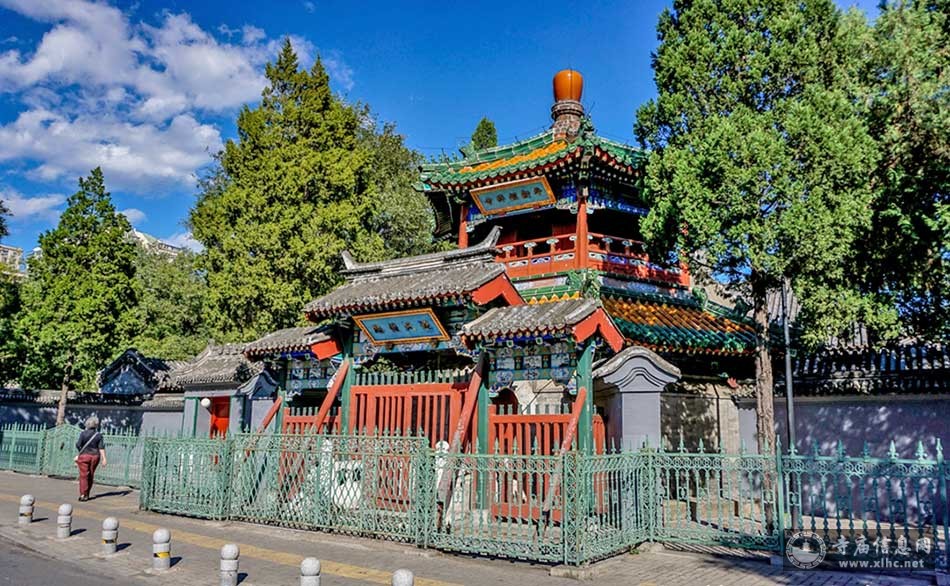
Beijing Xicheng Niujie Libaisi.
This iconic mosque, the largest and oldest in Beijing, offers a unique glimpse into Islamic architecture and culture, perfectly blending traditional Chinese and Arabic styles. Ensure to respect the sacred atmosphere during your visit, especially if you are there during prayer times when the ambiance becomes particularly serene.
How to Get There
Getting to Niujie Libaisi (牛街礼拜寺) in Beijing is quite straightforward, thanks to the city’s efficient public transportation system. This historic mosque, known as one of the largest and oldest in Beijing, is easily accessible by various means of transport.
Public Transit Options
- Bus Services:
- Several bus routes connect directly to Niujie Libaisi. You can take the following routes:
- Route 10
- Route 48
- Route 88
- Route 213
- Route 717
-
The nearest bus stop is Niujie Libaisi Station (牛街礼拜寺站), which is just a short walk of about 90 meters to the mosque entrance.
-
Subway:
- The closest subway station is Caishikou Station (菜市口站), which is on Line 4. From there, you can either take a bus or opt for a short taxi ride to reach the mosque.
Taxi and Ride-Hailing Services
For convenience, especially if you are carrying luggage or traveling in a group, taxis and ride-hailing services like Didi are readily available throughout Beijing. The address for GPS navigation is:
- Niujie Libaisi, 88 Niujie Zhonglu, Xicheng District, Beijing (西城区牛街中路88号).
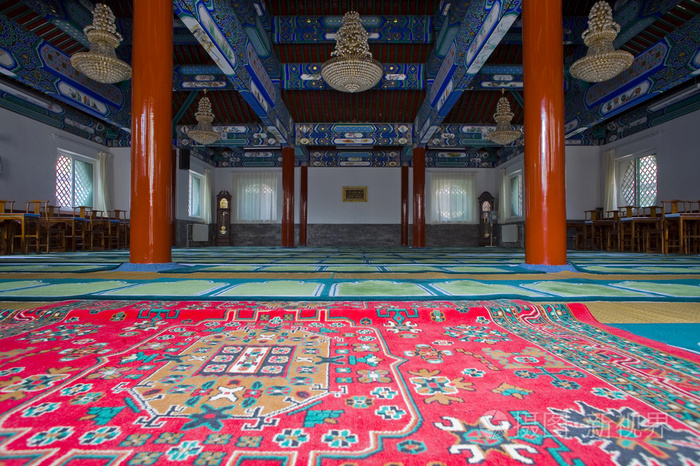
Beijing Xicheng Niujie Libaisi.
Walking and Biking
Should you be staying nearby, the area around Niujie Libaisi is pedestrian-friendly, allowing for a leisurely exploration. Biking is also an option, with many bike-sharing programs available throughout the city. Look for local bike-sharing stations, and you can enjoy a scenic ride to the mosque.
Best Time to Visit
Niujie Libaisi is open year-round, making it an accessible destination at any time. The recommended visit duration is approximately one hour, allowing enough time to appreciate the unique architectural features and the serene atmosphere of this significant religious site.
Ticket Information
Admission to the mosque is quite affordable, with ticket prices set at:
– Adults: 10 RMB
– Children: 5 RMB
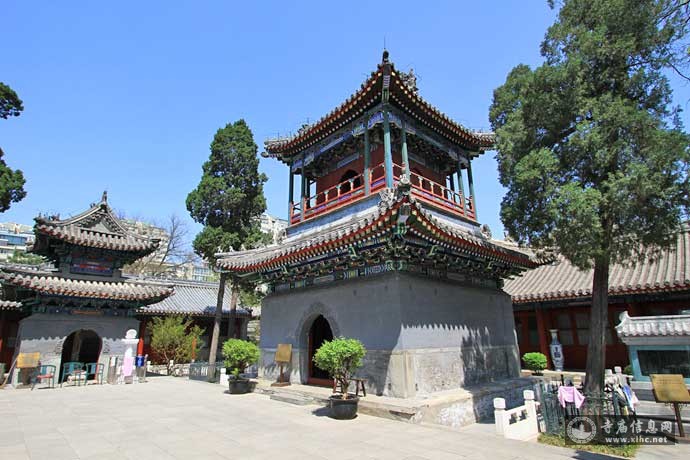
Beijing Xicheng Niujie Libaisi.
In summary, whether you choose public transport, a taxi, or a leisurely walk, reaching Niujie Libaisi is convenient and offers a glimpse into the historical and cultural richness of Beijing’s Islamic heritage.
Local Cuisine and Accommodation
Exploring the vibrant neighborhoods surrounding Niujie Libaisi (牛街礼拜寺) in Beijing offers a delightful mix of culinary experiences and accommodation options that cater to a variety of tastes and preferences.
Food Recommendations
1. Traditional Muslim Cuisine at Donglaishun (东来顺)
Located just a stone’s throw from the mosque, Donglaishun is famous for its authentic Beijing-style Muslim dishes. The highlight here is the fragrant lamb hot pot, where diners can select from a variety of fresh ingredients to cook at their table. The restaurant’s cozy atmosphere and attentive service make it a popular choice among both locals and tourists.
2. A Taste of the Middle East at Al-Haram Restaurant (哈拉姆餐厅)
For those seeking Middle Eastern flavors, Al-Haram offers a menu filled with delicious dishes such as kebabs, falafel, and hummus. This eatery stands out not only for its food but also for its warm atmosphere and friendly staff, making it a great spot for families and groups.
3. Street Food Delights at Niujie Street Market
Wander through the bustling Niujie Street Market to sample a variety of local snacks. From fragrant lamb skewers to sweet red bean pastries, this market is a perfect place to experience the local food culture. Don’t miss out on the freshly made naan bread, often served hot from the oven!
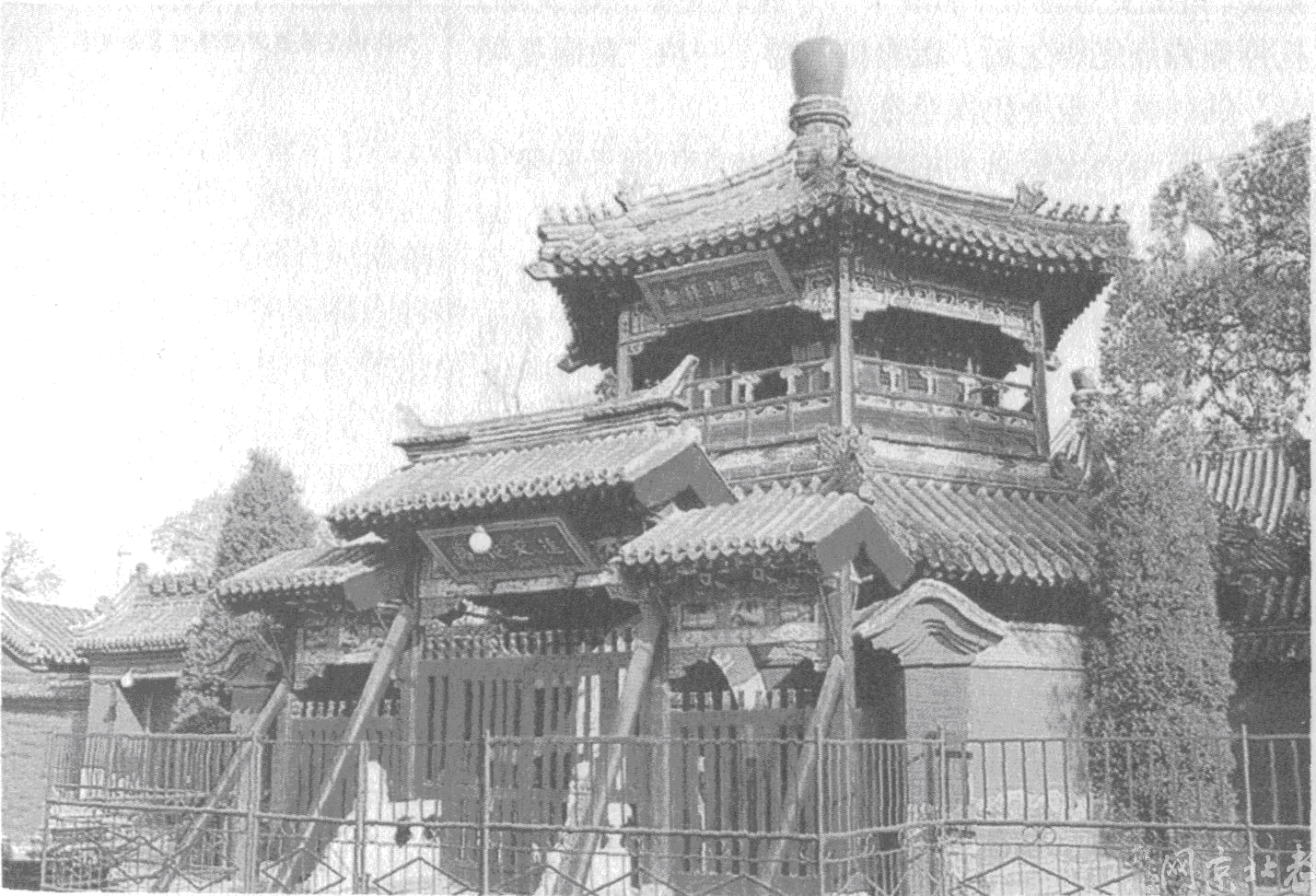
Beijing Xicheng Niujie Libaisi.
4. Gourmet Dining at TRB Hutong
For a more upscale dining experience, TRB Hutong is a must-visit. This Michelin-starred restaurant serves exquisite European cuisine in a beautifully restored courtyard setting. The tasting menu is highly recommended for a memorable culinary journey.
Accommodation Options
1. Beijing Oriental Joy Hotel (北京东方君悦大酒店)
This luxurious hotel is ideal for those looking for comfort and convenience near Niujie. The hotel features elegant rooms, a spa, and several dining options, ensuring a relaxing stay. Its proximity to the mosque and other cultural sites makes it a perfect base for exploring the area.
2. 7 Days Inn (7天连锁酒店)
For budget travelers, 7 Days Inn provides affordable yet comfortable accommodations. Located within easy reach of Niujie Libaisi, this hotel offers clean and simple rooms with modern amenities. It’s a great option for those who want to explore the city without breaking the bank.
3. Beijing Shijia Inn (北京世家旅馆)
Tucked away in a traditional hutong, Beijing Shijia Inn offers a unique experience with its charming courtyard and cozy rooms. This inn provides a glimpse into the local lifestyle while being just a short walk from the mosque and nearby attractions.
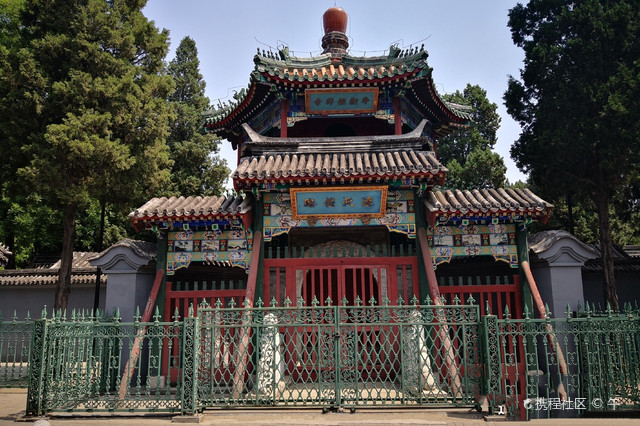
Beijing Xicheng Niujie Libaisi.
4. Peking Uni-Youth Hostel (北大青年旅社)
Perfect for backpackers and young travelers, this hostel provides dormitory-style accommodations and private rooms. The hostel features communal areas for socializing and is located in a lively neighborhood filled with restaurants and shops.
Whether you are indulging in the local cuisine or finding a cozy place to rest after a day of exploration, the area around Niujie Libaisi offers plenty of options to enhance your Beijing experience.
Frequently Asked Questions
-
What is Niujie Libaisi (牛街礼拜寺) and its significance?
Niujie Libaisi, also known as the Niujie Mosque, is the largest and oldest mosque in Beijing, with a history stretching back over 600 years. It is a prominent site for the Hui Muslim community and a prime example of the fusion of Chinese and Islamic architectural styles. -
Where is Niujie Libaisi located?
The mosque is located at 88 Niujie, Xicheng District, Beijing. It is easily accessible by public transport, with several bus routes and the subway nearby. -
What are the opening hours and admission fees?
Niujie Libaisi is open year-round. Admission fees are 10 RMB for adults and 5 RMB for children. It’s advisable to check current opening hours before your visit, as they may vary. -
How long should I plan to visit Niujie Libaisi?
A visit typically takes about 1 to 1.5 hours, allowing enough time to explore the main prayer hall, the surrounding architecture, and enjoy the serene atmosphere. -
Are there any specific visitor guidelines I should be aware of?
Visitors are expected to maintain a respectful demeanor due to the mosque’s religious significance. Photography may be restricted in certain areas, and appropriate attire is encouraged. -
What can I expect to see inside the mosque?
Inside Niujie Libaisi, you will find beautifully decorated halls, traditional Islamic calligraphy, and significant religious artifacts, including the mihrab and minbar. The architecture reflects both Chinese and Islamic influences. -
Is Niujie Libaisi accessible for individuals with mobility challenges?
The mosque has some accessibility features, but visitors with mobility challenges should check in advance to ensure the facilities meet their needs. -
Are there any nearby attractions or dining options?
Yes, the area around Niujie Libaisi is rich in culture and history. Nearby attractions include traditional Hutongs and local markets. There are also various dining options offering Halal cuisine, making it convenient for visitors.
Final Thoughts on Your Trip
Visiting the Niujie Libaisi Mosque in Beijing is more than just a tour through one of the city’s most significant historical sites; it is an immersive journey into the rich tapestry of Islamic culture and architecture within China. The mosque, with its majestic blend of traditional Chinese and Middle Eastern architectural styles, stands as a testament to the harmonious coexistence of diverse cultures throughout centuries.
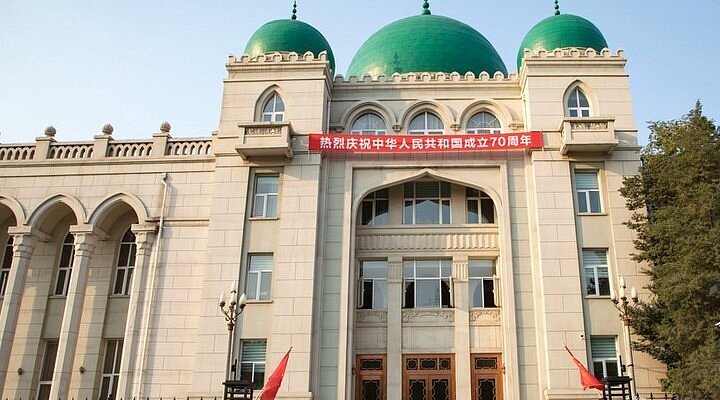
Beijing Xicheng Niujie Libaisi.
As you wander through the grand halls and serene courtyards, take a moment to reflect on the centuries of worship and community that have taken place here. Whether you are drawn by the spiritual essence of the prayers, the intricate artistry of the structures, or the vibrant atmosphere during communal events, Niujie Libaisi offers something profound for every visitor.
Plan your visit to this remarkable mosque, and allow yourself to be captivated by its elegance and the stories it holds. In doing so, you will not only enrich your understanding of Beijing’s diverse heritage but also gain a deeper appreciation for the interwoven narratives that shape our world today.
